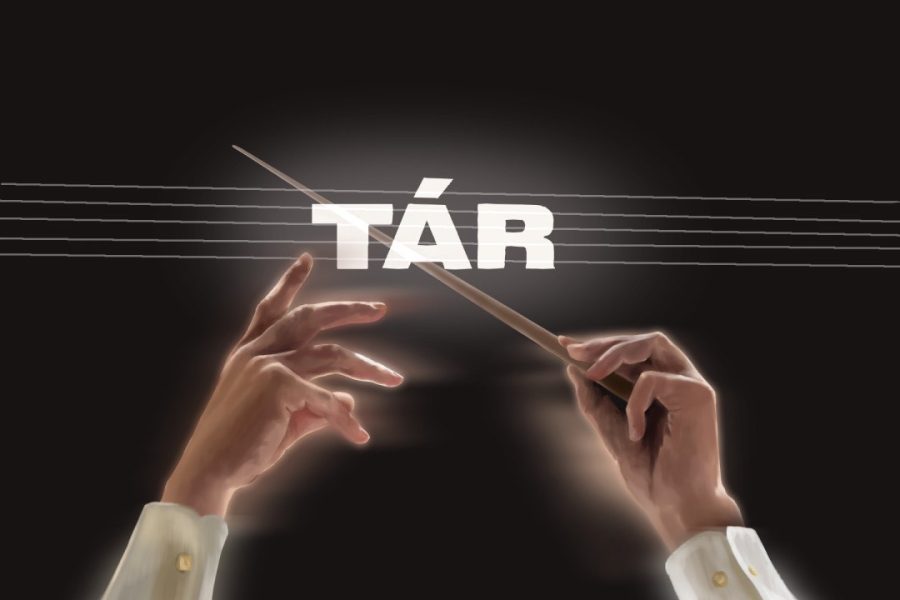“TÁR”: A gripping crescendo into disgrace
November 16, 2022
After 16 years out of the director’s chair, Todd Field returns with his best work yet. His newest film TÁR follows the tune of a domineering yet guilt-ridden maestra battling resurfaced misconduct allegations during the short-lived peak of her stardom. With Cate Blanchett leading as the eponymous Lydia Tár, Field’s first original screenplay- and most spontaneously finished project- is compelling despite its occasionally vain social critique.
Although Blanchett’s exuberant monologues uphold the film’s intensity, its most commendable facet is its restraint. Its rare and limited soundtrack emphasizes Tár’s orchestra, and its slow but suitable pace unveils her ironic fate well, despite the occasional lulls nearly inevitable in a 158-minute drama.
Tár’s subdued wife, Sharon Goodnow (skillfully played by Nina Hoss), is an underappreciated contributor to the film’s strained ambiance. Blanchett’s coerciveness as the imperious conductor would not have been as impactful had it not been supported by Hoss as her abiding victim.
Considering the film was mostly written during the lockdown prompted by the COVID-19 pandemic, today’s exhaustive internet culture seeps into the script, making it topical but challenging its durability. Field attempts to tackle a contentious subject matter– portraying the head-to-head battle between a scrutinized predator and the unforgiving, progressive society around her. Through repeated instances of questionable writing, he shows himself to be skeptical of an ideology he might not entirely understand.
Field conducts Lydia Tár’s character with precision and intent, but he does not seem to care for accuracy when portraying who she’s up against. Her challengers are cartoonish, strawman versions of what exists in real life. When pitted against hyperbolic naysayers, Tár’s deliberate personality leaves the film with an aura of unintentional humor (a prominent example being the infamous Juilliard scene), which is a shame considering how potent and well-made every other aspect of it is.
At its best, TÁR explores the ramifications that follow an artist when put under public scrutiny with its aspirational script bolstered by well-acted, alluring characters. At its worst, it feels like a world built by someone who spent too much time hate-reading Twitter threads. If Field remained fixated on Tár and her guilt longer, rather than attempting to portray current, short-lived trends, not only would the film be more timeless, it would’ve also achieved its purpose without feeling out of touch.




